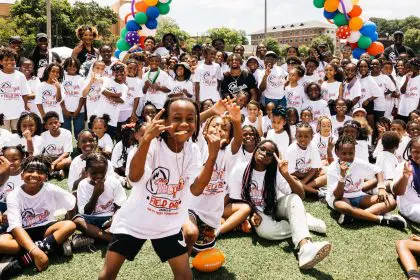Diversity, equity and inclusion are not just buzzwords; they are essential principles that corporations are increasingly committed to maintaining. As the landscape of work evolves, companies are finding innovative ways to keep DEI alive, particularly through the integration of artificial intelligence. This article explores how organizations are adapting their DEI strategies to ensure they remain relevant and effective in today’s dynamic environment.
Shifting perspectives on hiring
During a recent Business Insider roundtable discussion, corporate executives highlighted the evolution of DEI practices. Maggie Hulce, Chief Revenue Officer at Indeed, emphasized a shift towards skill-based hiring. This approach prioritizes the skills necessary for future roles rather than focusing solely on traditional qualifications. “Let’s focus on the skills that are required for the future of work and what we are looking for from leaders in our company,” Hulce stated. This perspective encourages companies to consistently apply these new standards in their hiring processes.
The role of AI in DEI
AI is playing a pivotal role in this transformation. By utilizing AI tools, organizations can identify and promote in-house talent, thereby shifting the narrative around DEI from conflict to opportunity. Purvi Tailor, Vice President of Human Resources at Ferring Pharmaceuticals, noted that the conversation around DEI must evolve. “It becomes much more about inclusion and changing mindsets and creating awareness about your own biases,” she explained during the discussion.
Spring Lacy, Verizon’s Global Head of Talent Acquisition and DEI, echoed this sentiment, stating that the notion of lowering standards to achieve diversity is a misconception. “We’ve got lots of super smart, super skilled people of color, women, people with disabilities and the LGBTQI community, who just aren’t seen for all of the biases that you talked about,” Lacy added. This reinforces the idea that diversity does not mean compromising on quality.
Commitment amid challenges
Despite facing pushback from conservative factions, major corporations like Microsoft and Walmart are finding ways to uphold their DEI values. Ferring Pharmaceuticals, for instance, has placed a strong emphasis on inclusion. A study by McKinsey & Company found that inclusion significantly impacts an employee’s sense of belonging within an organization. In 2022, Ferring introduced unlimited financial support for family creation, including IVF, adoption and surrogacy, available to all employees, regardless of gender or sexual orientation. This shift highlights the importance of creating a culture where everyone can bring their whole selves to work.
AI as a tool for accountability
Companies like MasterCard are leveraging AI to enhance leadership engagement and accountability. Lucrecia Borgonovo from MasterCard stated to Business Insider, “It’s really important that we drive shared accountability across our 34,000 employees around the role that each of us has to collectively play in creating this culture of inclusion where everybody feels that they can belong.” This approach ensures that DEI is not just a top-down initiative but a collective effort involving all employees.
The student perspective on DEI
As college students transition into the workforce, they bring with them experiences shaped by their educational environments. At the University of Michigan, Black leaders have expressed concerns about their voices being marginalized in discussions about DEI. This underscores the importance of listening to diverse perspectives in the ongoing conversation about DEI.
The future of diversity, equity and inclusion is bright, especially as companies embrace innovative solutions like AI to foster a more inclusive workplace. By focusing on skills, accountability and the unique experiences of all employees, organizations can create environments where everyone feels valued and empowered. As we move forward, it is crucial to remain committed to these principles, ensuring that DEI is not just a trend but a fundamental aspect of corporate culture.

















